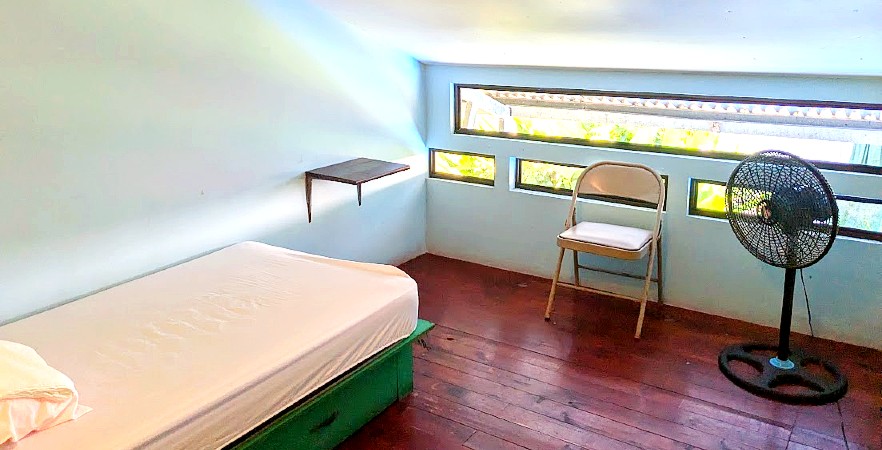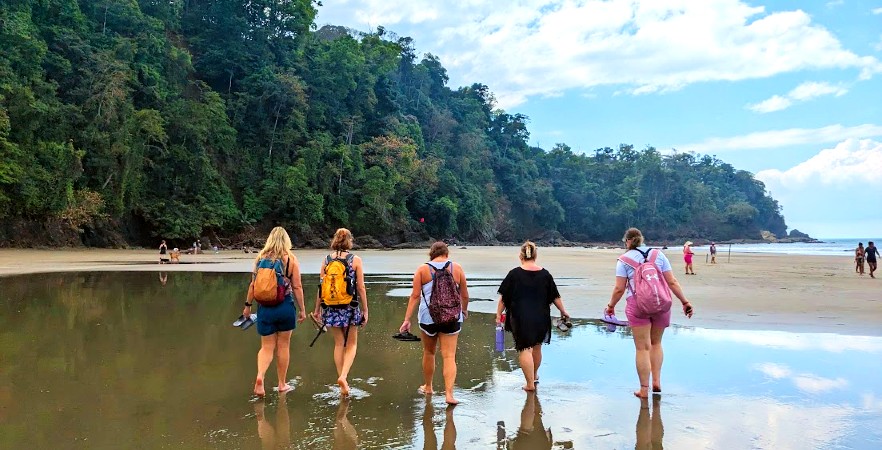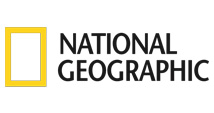Turtle and Wildlife Conservation
Costa Rica
Volunteer at a conservation centre working with local communities and government to research and conserve local wildlife, including endangered sea turtles.
The centre runs active scientific research projects throughout the year on the local wildlife, including monkeys, birds, bats and crocodilians so it’s an amazing opportunity to get involved in important work and immerse yourself in Costa Rica’s wildlife. In turtle season, you will be helping to monitor and protect Olive Ridley and Green sea turtles which come to nest on the beaches near to the centre and are in danger of extinction.
The reserve is located on the Southern Pacific Coast of Costa Rica. It’s famous for its biodiversity which you can enjoy in your free time, with stunning beaches, rivers, waterfalls to explore and national parks nearby with many activities such as zip lining and whale-watching.
Join the team to help research and protect Costa Rica’s sea turtles and incredible exotic wildlife.
Key Info
View More PhotosProject Information
Volunteer role: What will I be doing?
You will be volunteering at a non-profit biological research and education centre formed by community members and Costa Rican scientists. You will be able to get involved in:
- Sea turtle conservation (from June to January)
- Wildlife conservation (all year) – birds, monkeys, bats, mammals, crocodilians, butterflies, reptiles and amphibians
During turtle season, volunteers undertake a mix of turtle and wildlife conservation activities.
SEA TURTLE CONSERVATION
On the South Pacific (west coast) beaches of Costa Rica there are three species of sea turtles which can be seen nesting at different times of the year: Olive Ridley, Green and Leatherback. They are all in danger of extinction.
You will learn about the biology of these incredible sea turtles and the threats they are facing. The beach in the reserve has Olive Ridley turtle nests and the neighbouring beaches have Olive Ridley and Green turtles nests. June is the start of the nesting season, through to December. Baby turtles normally hatch from around mid-August until late January.
Volunteer activities include:
- Walking surveys of the nesting beaches with the local team to find new nests (from June to mid-December)
- Assisting with tagging adult nesting turtles, monitoring and data collection
- Relocating eggs to the hatchery
- Monitoring the hatchery (from August to January)
- Releasing hatchlings to the sea
- Beach cleans and maintenance
Due to the threats of poaching, predators and erosion, all nests are moved to the reserve’s protected hatchery. Important data about the turtle nests is gathered, including the incubation period and nest temperature.
Nest surveys in June and early July take place in the early morning. From July to mid-December, nest surveys are carried out at night and volunteers join one 3-4 hour shift between 7pm and 4am. You may walk up to 10km, with rest stops on the beach.
Hatchery shifts take place from August to January between 5am and 9pm. Volunteers walk to the nearby hatchery to check if any new hatchlings have emerged from the nest. You will collect data and help release them back into the sea!
You will work with experienced staff members, who will show you the scientific methods for working with sea turtles and data collection.
WILDLIFE CONSERVATION
The centre is involved in an exciting mix of different wildlife conservation projects. Some of these are carried out daily whereas others take place 1-2 times a week. The longer you are at the project, the more you will be able to experience!
Monkeys – surveys are carried out in the reserve forest, looking for the resident troops of Capuchin monkey and Howler monkeys. Volunteers observe the monkeys in the forest and record their behaviours and location.
Butterfly garden – the onsite butterfly garden is used as an open classroom to teach schools and local groups about ecology. Volunteers collect eggs, prepare butterfly food and help maintain the garden. Volunteers also work in the butterfly lab, monitoring and cleaning the caterpillar enclosures, transferring the pupa, and collecting data.
Birds – bird watching survey walks are conducted in the early morning and late afternoon. You will learn how to identify and record a variety of birds in the forest, river and beaches, including the resident population of Scarlet Macaw parrots.
Bats – so far 15 different species have been identified on the reserve. The team monitor the use of habitat and activity of bats within the forest, surveying bat houses and the bat population. In the day, the team head to the forest to search for sleeping bats. In the evening, the team use mist nests to capture the bats - details on their species and health is recorded - and they are then released.
Mammals – the reserve has over 15 species of mammals, including pumas, ocelots, coatis, jaguarundis, raccoons and tayras. Many of these are very elusive so the team research the mammals by looking for evidence of their activity (e.g. foot prints) and using camera traps which are checked weekly.
Snakes, amphibians, crocodiles – survey night walks along the reserve's jungle trails and waterways are carried out, looking for reptiles, snakes, amphibians, caimans and crocodiles. These take 2-4 hours starting in the early evening. Habitat and location of any animals found are recorded and animals may be captured for data collection and then released.
Outreach and education - the team engage the local community through outreach activities such as beach clean ups and summer camps. Volunteers can help create educational resources.
Typical day
In your first few days you will receive an induction to the centre, training about the research activities, how to use the equipment, and the work you will be doing.
From February to June, you will take part in wildlife conservation activities, including some early mornings and evening work. From June to January, you will be involved in turtle work, including night shifts from July, as well as wildlife conservation. Throughout the year, you will help with maintenance of the research centre and hatchery.
Volunteers normally work 6 days per week (with either Saturday or Sunday off). The volunteering daily schedule is designed to give rest time after late night shifts or early morning shifts.
In your free time you can relax on the beach, explore the local area or get involved in one of the many tours and activities nearby such as zip lining, whale-watching, surfing, horse riding, snorkelling and diving.
Other volunteers
There are usually 6-12 volunteers (with a maximum of 16), numbers vary throughout the year.
Duke of Edinburgh’s (DofE) award
This placement has been approved by the DofE as meeting the requirements for the Residential section of the Gold Award.
Local support
You will be working alongside the local team which is made up of local and international staff and scientists. You will be overseen by the project director and supported by a volunteer co-ordinator.
“Your support is vital to implementing, maintaining and growing our programmes of research and education to help conserve Costa Rica’s natural resources.” Oscar, Director
Accommodation
Accommodation is within the research centre, and you will have your own room. Most are single rooms and there is also one double room (for 2 persons), one bunk bed room (for 2 persons) and one family room (for up to 4 persons). Each room has a fan, simple storage and mosquito screens on the windows. Bathrooms are shared and have hot water showers.

There is a communal area for eating and socialising in and lots of hammocks to relax in! WIFI is available.

Meals
From Monday to Friday lunch is provided for volunteers by the centre’s cook. Volunteers make their own breakfasts and dinners from Monday to Friday and all meals at weekends, using groceries supplied by the project.
Food / groceries may include rice and beans, tortillas, pasta, vegetables, salads, sandwiches, soups, chicken, fish, beef, eggs, cheese and fresh tropical juices. There are cereals, fruit, toast, eggs and yoghurt available for breakfast.
Vegetarian and vegan options can be provided.
The tap water in Costa Rica is safe to drink.
Getting there
You will need to fly into San Jose (SJO). We can arrange for you to be met on arrival and have a private transfer to the project, which takes about 4 hours.
Location and free time
The reserve is located near Uvita in the Puntarenas Province on the Southern Pacific Coast of Costa Rica. It’s an unspoilt and beautiful region, famous for its incredible biodiversity.
The research centre is located by the coast and there are rivers and waterfalls to visit nearby as well as other beaches and national parks to explore. There is a village within walking distance with a few cafes / restaurants, a supermarket, shops, spa and sports centre to enjoy.

On your day off there are many tours and activities to choose from, such as surf lessons, horseback riding, zip lining tours, dance lessons, photography lessons, hiking, snorkelling and diving.
The centre is also ideally positioned to explore some of Costa Rica’s best national parks, with Marino Ballena National Park and Terraba-Sierpe wetland Mangrove tours close by.
Climate
The Puntarenas province has a tropical climate. Temperatures are warm throughout the year and average between 20-30˚C but due to the humidity (80%+) it can feel much warmer. There can be tropical rain showers at any time of year but the main rainy season is from August to December and the heaviest rainfall is from September to November.
Travelling in Costa Rica before or after your placement
Popular activities in Costa Rica that you might like to combine with your project are:
- Exploring and looking out for wildlife in Manuel Antonio National Park
- Visit the spectacular Arenal Volcano and relax in a hot spring
- See incredible biodiversity and birdlife in Monteverde Cloud Forest
For more information on Costa Rica and some of the things we loved when we visited there please see our Costa Rica country page.

Arrival & departure
- Start day (day to arrive at the project): any day expect Sundays, see available start dates below
- Departure day: varies depending on start day and duration
Durations
You can volunteer at this project for: 1 week, 10 days, 2 weeks - 12 weeks (7 nights per week).
Start dates
You can start on any day of the year apart from Sundays and 1 Jan, 24-25 Dec, 31 Dec.
The following dates in 2025 are fully booked: 16-22 Mar, 1-7 Jul, 15-31 Jul, 1-31 Aug.
Wildlife projects run throughout the year. Sea turtle conservation runs from June to January.
What's Included
Included
- Dedicated Pod Volunteer specialist to support you from booking on until you complete your trip
- Comprehensive trip planning guide
- Accommodation - in your own private room
- Food - all main meals
- Induction and training
- Support from the team onsite in Costa Rica
- 24/7 emergency support from the Pod Volunteer UK team
- Donation to Pod Environmental Fund tackling climate change
- 100% payment protection through ABTOT
- Volunteering certificate and reference (on request)
Not included
- Flights
- Transfers to / from the project (we can arrange this for you, it costs $160-$225 USD each way)
- Travel insurance
- Vaccinations
- Living costs - snacks, drinks
- Any tourist trips / activities you choose to do in your free time
Price table
| 1 week | £725 | GB Pounds |
| 10 days | £825 | GB Pounds |
| 2 weeks | £975 | GB Pounds |
| Extra weeks | £325 | GB Pounds |
Discounts
- £100 discount for children under 18 joining with parent(s)
- £50 discount if you have previously volunteered with Pod Volunteer
Where the money goes - financial transparency
Your fee covers the overseas costs of volunteering and the costs of running our organisation in the UK, on a non-profit basis. For more details and a breakdown of our costs please click here.
Book with confidence - financial protection
All monies paid to us are financially protected through The Association of Bonded Travel Organisers Trust Limited (ABTOT).
Fees in currencies other than GBP are indicative only and volunteers are invoiced in GBP. For current exchange rates please see www.xe.com
Read volunteer reviews from the Turtle Conservation project
Leo
“The center was amazing, all I did was amazing this is definitely the best travel experience of my life. You really work with the team, it is not too much and you get the opportunity to meet amazing people from all over the world. I saw and did things that i only saw in documentaries.
You do many things apart from turtles like bats birds, macaw monkeys, crocodiles etc The most rewarding thing is freeing baby turtles and the most challenging are the night walks on the beach and sand flies!! Just don't wait and go you will never get bored and you will come back with memories for all your life.
Pod Volunteer really helped me to try this kind of project i will do it again for sure. I just found your website and it was clear easy and the Pod Volunteer team is really helpful”
Jean-loup
“Amazing team, incredible landscapes, very interesting activities. I truly recommend Pod Volunteer for a safe, rewarding and unforgettable life changing experience!”
Samantha
"I had an amazing experience at the reserve. I was nervous at first as I had never done anything like this before but everyone made me feel so welcome. We got stuck into the amazing activities right away, within an hour of being there we had met our first baby turtle. It was unreal. On top of the amazing activities with turtles, butterflies, crocodiles and birds we had the daily experiences with lizards and howler monkeys! The community feel at the reserve was what really made with experience, cooking and eating together discussing the days findings."
Michael
“I got the opportunity to be involved in bird observation walks, shark surveys, late night beach patrols looking for nesting turtles, releasing newly hatched baby turtles, snakes walks, maintaining a butterfly garden, crocodile / caiman searches, and more. I will never forget the humbling experience of watching a female turtle come up the beach and lay her eggs.”
Bethany
"Our family has learnt so much and the work that you do is incredible. We’ve all felt so sad since leaving, the kids are already asking to come back again. There were so many highlights but releasing baby turtles into the sea has to be at the top, closely followed by night-time snake hunts, monkey walks, work in the butterfly garden, spotting a coati and meeting a red-eyed tree frog! It’s a true community and we feel privileged to have been a part of it."
Anne
“My volunteering placement with the turtle project in Costa Rica was all I had hoped for and more. From the beginning, Pod gave me excellent support in answering the questions I had about the placement and how to prepare for it. They contacted me at the strategic points in the planning process to check that all was well and ask if I had any further questions and were always responsive and helpful when I did. A truly once-in-a-lifetime experience!”
Brandy
“I had an absolutely delightful experience at the Turtle Conservation project. A gorgeous beach, nice accommodations, good food, and great group of people. I've worked as a research assistant at a loggerhead turtle nesting site, so I've had a similar experience. But the joy of seeing these tiny Olive Ridley hatchlings make their way to the ocean, overcoming the surf and fighting for survival is something I could experience many times over with equal emotional impact.”

24/7 support
Alex and the Pod UK team are here to help you throughout your trip
Reserve your place and start your volunteering adventure to Costa Rica!
BOOK NOWSIMILAR PROJECTS
Here are other popular projects you may be interested in











